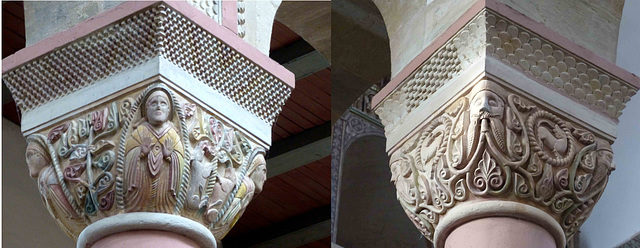Hildesheim - St. Godehard
Hildesheim - Heilig-Kreuz-Kirche
Hildesheim - Heilig-Kreuz-Kirche
Hildesheim - Heilig-Kreuz-Kirche
Hildesheim - Heilig-Kreuz-Kirche
Hildesheim - Dom
Hildesheim - Dom
Hildesheim - Dom
Hildesheim -Dom
Hildesheim - Dom
Hildesheim - Dom
Hildesheim - Dom
Hildesheim - Dom
Hildesheim - Dom
Hildesheim - Dom
Hildesheim - Dom
Hildesheim - Dom
Hildesheim - Dom
Hildesheim - Dom
Hildesheim - Dom
Hildesheim - Dom
Hildesheim - Dom
Hildesheim - Dom
Hildesheim - St. Godehard
Hildesheim - St. Godehard
Hildesheim - St. Godehard
Hildesheim - St. Godehard
Hildesheim - St. Godehard
Hildesheim - St. Godehard
Hildesheim - Wernersches Haus
Hildesheim - Wernersches Haus
Hildesheim - Waffenschmiedehaus
Hildesheim
Hildesheim - St. Michaeliskirche
Hildesheim - St. Michaeliskirche
Hildesheim - St. Michaeliskirche
Hildesheim - St. Michaeliskirche
Hildesheim - St. Michaeliskirche
Hildesheim - St. Michaeliskirche
Hildesheim - St. Michaeliskirche
Hildesheim - St. Michaeliskirche
Hildesheim - St. Michaeliskirche
Hildesheim - St. Michaeliskirche
Hildesheim - St. Michaeliskirche
Hildesheim - St. Michaeliskirche
Location
Lat, Lng:
You can copy the above to your favourite mapping app.
Address: unknown
You can copy the above to your favourite mapping app.
Address: unknown
Keywords
Authorizations, license
-
Visible by: Everyone -
All rights reserved
-
109 visits
Hildesheim - St. Godehard


Louis the Pious founded the bishopric of Hildesheim in 815. The settlement developed into a town and was granted market rights by King Otto III in 983. Craftsmen and merchants were attracted and the city developed into an important community. By 1167, Hildesheim was an almost completely walled market settlement.
At the beginning of the 13th century, Hildesheim had about 5,000 inhabitants, and when Hildesheim received its city charter in 1249, it was one of the largest cities in northern Germany. The clergy ruled Hildesheim for four centuries before a town hall was built and the citizens gained influence and independence. In 1367, Hildesheim became a member of the Hanseatic League. But what is now called Hildesheim was various small "suburbs". After centuries of (sometimes armed) disputes, it was not until the end of the 16th century that a union was created and subsequently at least the inner wall was taken down Old and New Town.
During the Thirty Years' War, Hildesheim was besieged and occupied several times. In 1813, after the Napoleonic Wars, the town became part of the Kingdom of Hanover, which was annexed by the Kingdom of Prussia as a province after the Austro-Prussian War in 1866.
The air raids on Hildesheim in 1944/45 destroyed large parts of the city. Of the 1500 half-timbered houses, only 200 remained. 90 percent of the historic old town was destroyed in the firestorm.
-
St. Godehard, one of the most important bishops of Hildesheim from 1022 to 1038, was canonized in 1133. In the same year, construction began on a church and monastery in his honor. In 1172 the work was completed and this church got consecrated.
The monastery remained untouched by the Reformation and existed until secularization in 1803. The basilica was saved from demolition and became a Catholic parish church.
The basilica remained almost unchanged over the centuries and was not heavily damaged even during WWII. From 1945 to 1960, when Hildesheim Cathedral was destroyed and rebuilt, St, Godehard served as the "cathedral" of the Bishop of Hildesheim.
The capitals in St. Godehard are excellently worked.
Translate into English
At the beginning of the 13th century, Hildesheim had about 5,000 inhabitants, and when Hildesheim received its city charter in 1249, it was one of the largest cities in northern Germany. The clergy ruled Hildesheim for four centuries before a town hall was built and the citizens gained influence and independence. In 1367, Hildesheim became a member of the Hanseatic League. But what is now called Hildesheim was various small "suburbs". After centuries of (sometimes armed) disputes, it was not until the end of the 16th century that a union was created and subsequently at least the inner wall was taken down Old and New Town.
During the Thirty Years' War, Hildesheim was besieged and occupied several times. In 1813, after the Napoleonic Wars, the town became part of the Kingdom of Hanover, which was annexed by the Kingdom of Prussia as a province after the Austro-Prussian War in 1866.
The air raids on Hildesheim in 1944/45 destroyed large parts of the city. Of the 1500 half-timbered houses, only 200 remained. 90 percent of the historic old town was destroyed in the firestorm.
-
St. Godehard, one of the most important bishops of Hildesheim from 1022 to 1038, was canonized in 1133. In the same year, construction began on a church and monastery in his honor. In 1172 the work was completed and this church got consecrated.
The monastery remained untouched by the Reformation and existed until secularization in 1803. The basilica was saved from demolition and became a Catholic parish church.
The basilica remained almost unchanged over the centuries and was not heavily damaged even during WWII. From 1945 to 1960, when Hildesheim Cathedral was destroyed and rebuilt, St, Godehard served as the "cathedral" of the Bishop of Hildesheim.
The capitals in St. Godehard are excellently worked.
uwschu, Marco F. Delminho have particularly liked this photo
- Keyboard shortcuts:
Jump to top
RSS feed- Latest comments - Subscribe to the comment feeds of this photo
- ipernity © 2007-2025
- Help & Contact
|
Club news
|
About ipernity
|
History |
ipernity Club & Prices |
Guide of good conduct
Donate | Group guidelines | Privacy policy | Terms of use | Statutes | In memoria -
Facebook
Twitter

Sign-in to write a comment.